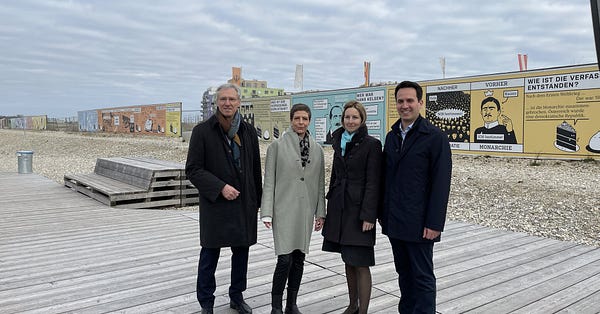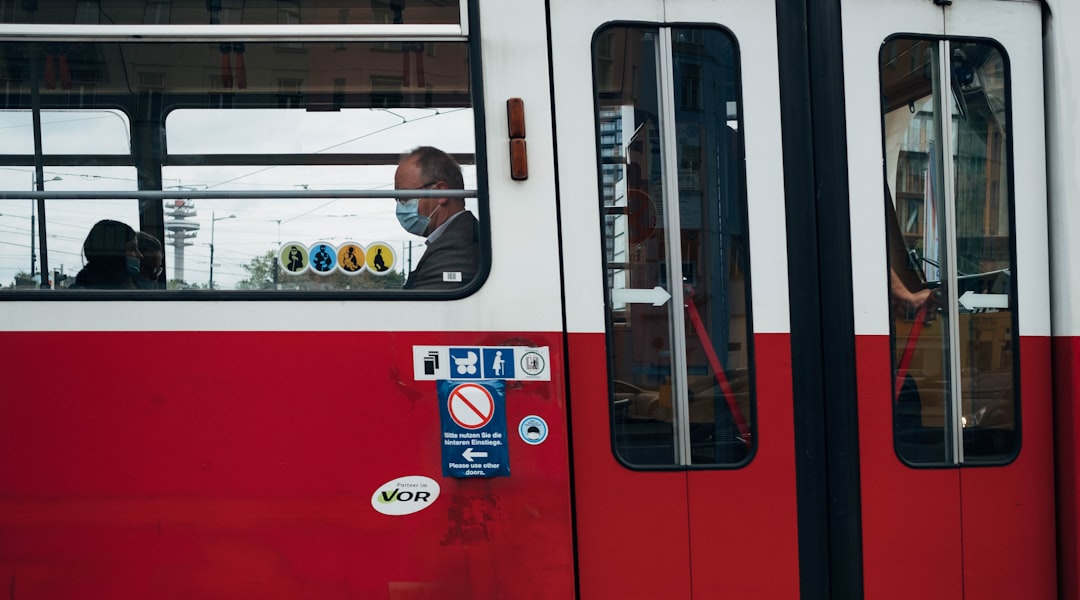Truth And Reconciliation
COVID-19 countermeasures are being wound down but the pandemic's legacy continues to shape Austrian politics
Servus!
As of today, March 1, Vienna’s mask mandate on public transport is at an end. In allowing the mandate to elapse, Vienna’s city government—which carved out its own, more stringent path last year on COVID-19 countermeasures in contrast to the laxer attitude of the federal government—is recognizing reality, as both compliance with and enforcement of the mandate had been in decline in recent months. City hall has also done away with the mask mandate in pharmacies, the PCR test mandate for hospital and care home visitors, and a three-visitor-per-day limit for hospital patients.


These measures are the first steps in a process of liberalization that will see all COVID-19 countermeasures nationwide repealed or allowed to elapse by June 30. The mask mandate in hospitals, care facilities, and other such ‘vulnerable institutions’ will end on May 1. In the future, free COVID-19 testing will only be available to those with symptoms and reporting COVID-19 cases will no longer be mandatory. In other words, after June 30, COVID-19 will be treated, more-or-less, as a regular virus that can be controlled and treated through vaccination and medication like Paxvolid.
It has been almost three years since Austria entered into its first COVID-19 lockdown. While data accumulated from waste water monitoring indicates case numbers are on the rise again in Austria, especially in the state of Upper Austria, the country lived through viral waves in March, July, October, and December of last year without going into lockdown or the healthcare system entering into triage. The time when politics reacted to COVID-19 with firm-handed countermeasures is very much behind us.
The pandemic’s legacy, however, lives on. It is one factor that explains the re-emergence of the far-right Freedom Party (FPÖ), the only party in parliament which opposed COVID-19 countermeasures including the proposed vaccine mandate. That oppositional stance is one part of the FPÖ’s meta-narrative: an us-versus-them mentality, the little guy against the system, with the FPÖ standing up against a monolithic political consensus that spans from left to right on COVID-19, Ukraine, and all the rest. That message currently appeals to 29 percent of the Austrian electorate.
More broadly, Austrians see the pandemic as having ruptured society. In a poll conducted in mid-February, 66 percent of respondents said the split between the vaccinated and unvaccinated constitutes a “clear division” above and beyond left and right or citizens and migrants. That’s down from 90 percent who said the same thing in December, which indicates something of a cooling, but feelings are still hot enough to trouble chancellor Karl Nehammer, who has called for a truth and reconciliation commission to examine Austria’s handling of the pandemic.
We’ll find out later this month what this will entail, but the initial signals are far from promising. Everything will be up for discussion including the 3G rule and subsidies to people and businesses affected by the pandemic. “We are under the spell of experts,” Nehammer said, and “now it is for experts to explain how they came to their decisions.” It seems as if the chancellor is preparing to pass the buck. The responsibility rests not with the politicians who took the decisions, of course, nor those who spread conspiracy theories, stoked societal tensions, and drove people to madness. The problem is always the experts.
Bis bald!
Thank you for subscribing to the Vienna Briefing. If you know someone who might also be interested in receiving this newsletter, consider sharing it with them today.
The Vienna Briefing is a free newsletter. If you enjoy and would like to support my work, think about sending me a tip via PayPal. Thank you to all those who have contributed.
Daniel Aschheim’s book Kreisky, Israel, and Jewish Identity for the first time examines former chancellor Bruno Kreisky’s politics through the prism of his Jewish identity and relationship with the State of Israel. I wrote about and reviewed the book for the British journal Fathom.

More than 40 percent of residents in Vienna’s Seestadt neighborhood do not have the right to vote in national elections in Austria, a democratic deficit that politics has to find a way to bridge in order to engage all Austrian residents in the political process. To that end, targeted at young people, the outdoor exhibition “What Does the Constitution Have to Do with Me?” represents a fun, comprehensible way of understanding Austria’s rather complicated constitution. Head over to Seestadt before March 6 to check it out.


Neutrality, Now And Forever
Chancellor Nehammer recommitted Austria to its neutrality at a contentious parliamentary debate last week. The special session was called by the liberal NEOS Party to mark the one-year anniversary of the Russian invasion of Ukraine.
Send Out The Tanks
The Austrian military is to modernize its fleet of 170 tanks at a cost of €560 million. The army currently operates 58 Leopard 2 and 112 Ulan tanks. The upgrade work on the German-produced Leopard 2s will be completed in Munich and is due to last until 2029.
Kickl Ups the Ante
FPÖ leader Herbert Kickl used an Ash Wednesday speech to refer to president Alexander Van der Bellen as “senile,” a “mummy,” and a “political chameleon.” Though public prosecutors initiated an investigation into Kickl’s remarks, he will not face charges, Van der Bellen confirmed Tuesday.



